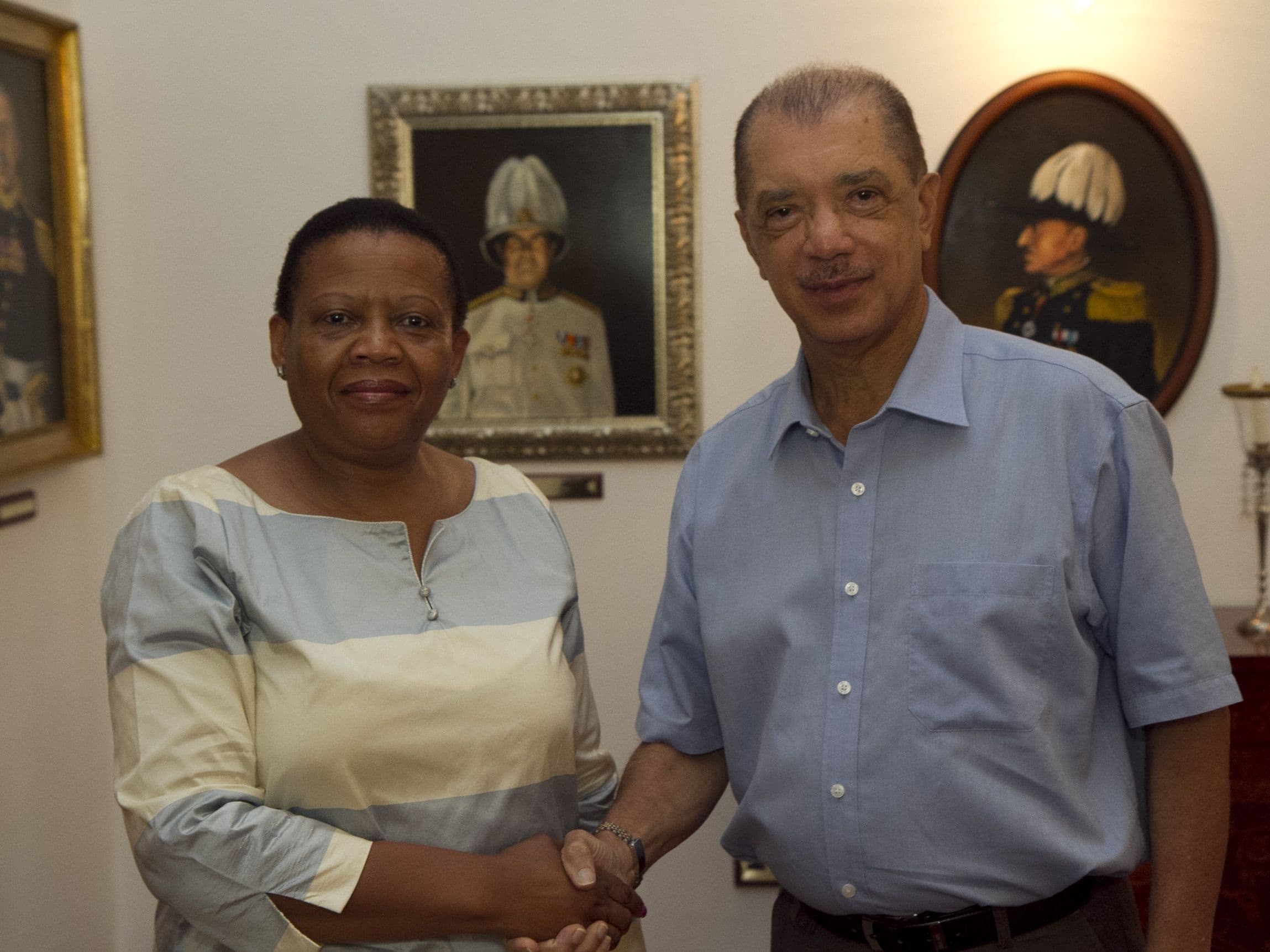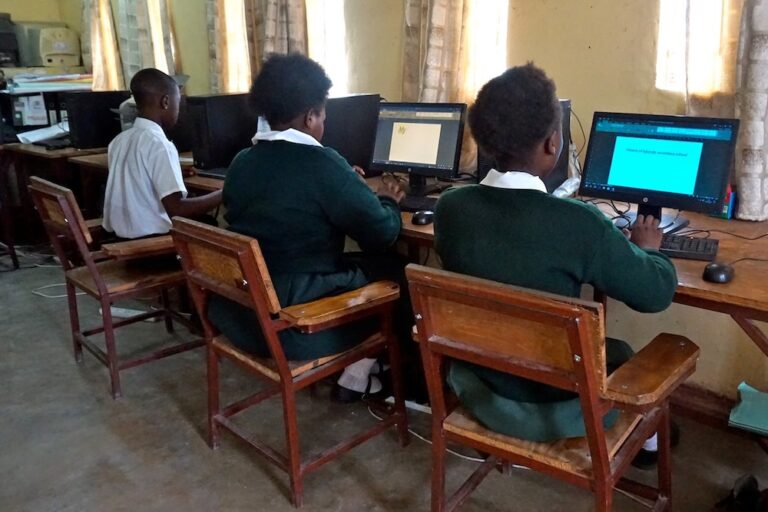Hear how the Special Rapporteur on Freedom of Expression and Access to Information in Africa has been working with civil society to get more people – and more countries – on board.
“Yes, journalists have the right of access to information, but this is a right that everybody’s entitled to, particularly ordinary people,” Advocate Pansy Tlakula told me in a telephone conversation in January.
Tlakula, who is the Special Rapporteur on Freedom of Expression and Access to Information in Africa, was referring to the common misconception that access to information is a right that only journalists should worry about.
She believes that it is essential for everyone to understand the role that access to information plays in the right to vote, the right to participate in government, and other social and economic rights.
In this podcast, we hear how Tlakula, who has been Special Rapporteur since 2005, has been working with civil society to strengthen support for access to information in Africa. We also learn about a project she’s promoting – the Model Law on Access to Information for Africa.
This podcast is part three of a three-part audio series that looks at the critical issue of access to information in Africa. Click here to listen to part one, and here to listen to part two.
You can find extended interviews with some of the key players in access to information in Africa here.
We’d love to hear your thoughts on this podcast episode. Feel free to tweet your thoughts to us @IFEX, or share your ideas on our Facebook page.
To learn more about why freedom of information is important, how it is addressed through legislation, and how it can be used to promote accountability and democracy all around the African continent, check out this factsheet by Karen Mohan and Africa Check.
The music in this podcast is entitled “Ceteski,” by NICOCO, and is being used under a Creative Commons License.
Audio Transcript
Caro Rolando: Hi, I’m Caro Rolando, IFEX Section Editor for the regions of Africa, Europe and Central Asia. Welcome to this IFEX podcast. IFEX is the global network of organisations dedicated to defending and promoting free expression. To learn more about our work, visit ifex.org. That’s w-w-w dot i-f-e-x dot o-r-g.
This is part three of a three-part audio series that looks at the critical issue of access to information in Africa. You can check out parts one and two on our website.
In this section, we’ll take a look at an intergovernmental organization trying to get governments to adopt access to information legislation all around the continent: The African Commission on Human and People’s Rights.
Pansy Tlakula: My name is Pansy Tlakula, I’m a member of the African Commission on Human and People’s Rights, and its Special Rapporteur on Freedom of Expression and Access to Information in Africa.
CR: Since her appointment as Special Rapporteur in 2005, Advocate Pansy Tlakula has been working closely with civil society to strengthen support for access to information on the continent. Recently, she’s been promoting a project which could potentially have significantly wide-ranging impact – the Model Law on Access to Information in Africa.
The idea for a Model Law came about after several government representatives met and realized that their governments weren’t necessarily opposed to creating laws about access to information, or ATI, but they needed prototypes to follow. So Tlakula and her colleagues started working to get them what they needed.
PT: Under the auspices of my office, we put together a number of experts, and we then produced a draft model law on access to information, which went through a long consultation process in all the five regions of the continent. And then that culminated in the adoption of this model law on Access to Information for African Member states.
CR: A long process, but the hard work paid off. The model law was eventually adopted as an official document of the African Commission in 2013. Since then, Tlakula and others have been encouraging government leaders to use the model law as a prototype in developing their own legislation. She’s visited Ghana, Malawi, The Seychelles, and Mozambique, where she met the Chairperson and members of the parliamentary portfolio committee responsible for processing the draft bill. She gave them the Portuguese language version of the model law, and encouraged them to use it in the finalization of their draft bill.
Like many other access to information advocates, Tlakula counts Mozambique as one of the biggest recent successes regarding access to information on the continent.
PT: One of our successes recently has been Mozambique. Mozambique had been talking about adoption of an ATI law for a very long time.
CR: According to Tlakula, Mozambique had created draft after draft of the law for eight years. But then, last November, she went on an advocacy visit to Mozambique, just as Parliament was finishing a recent draft of an access to information law.
PT: So they gave us their draft, and we made an input into the draft. We also gave them a copy of the Model Law, and they then finalized, took some of our proposals into consideration, and the law was adopted, and in December the new president signed it into law.
CR: More and more countries in Africa are recognising the need for ATI legislation. From the time that Tlakula became the Special Rapporteur on Free Expression and Access to Information, the number of countries in Africa that have adopted ATI laws has increased from 5 to 16.
But despite successes at the government level, Tlakula believes it’s vital for the grassroots to understand the importance of access to information before their government adopts a top-down legislation. This is the approach she took when she went to The Seychelles in January 2015. In her conversation with authorities there, she and her team advised government and civil society to hold consultations across the country, to speak with people about the importance of an ATI Law and try to clear up any misconceptions before rushing to approve the law. One of those misconceptions is the idea that access to information is something only journalists need to worry about.
PT: In all the work that we do, we say “yes, journalists have the right of access to information, but this is a right that everybody’s entitled to, particularly ordinary people. The only way that they can access services from government is if they have information about where those services can be accessed. So this is the message that we are constantly delivering. So we said to Seychelles, “it’s not advisable to come from the top, to adopt this kind of law. It is important to consult the people of Seychelles about what ATI is about and whether they think there is a need for an ATI law in that country.”
CR: Regardless of what stage individual countries are at when it comes to legislation on the issue, one thing to come out of Tlakula’s work is that people all around the continent are more aware of how important access to information is to every aspect of their lives.
This podcast was produced by Caro Rolando for IFEX, the global network of organisations dedicated to defending and promoting free expression. To hear the rest of this series, visit ifex.org. We’d also love to hear your reactions to this series. You can tweet us AT IFEX, or find us on Facebook at IFEXorg.
Caro Rolando is the IFEX Section Editor for Africa, Europe and Central Asia.



